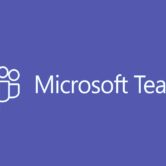Microsoft 365 is a cloud-based productivity suite that combines Office applications, Windows operating system, and enterprise-grade security and compliance features. It is designed to help businesses of all sizes and industries to work smarter, faster, and more securely. Microsoft 365 offers different plans to suit different needs and budgets, but two of the most popular ones are Microsoft 365 E3 and Microsoft 365 E5. In this article, we will compare these two plans and highlight their main features, benefits, and differences.

Microsoft 365 E3: The standard enterprise plan
Microsoft 365 E3 is the standard enterprise plan that provides the core functionality and services of Microsoft 365. It includes the following components:
- Microsoft 365 Apps for enterprise: This includes the latest versions of Word, Excel, PowerPoint, Outlook, OneNote, Publisher, and Access for desktop and mobile devices. You can install these apps on up to five devices per user and access them online or offline. You also get 1 TB of OneDrive cloud storage per user to store and share your files.
- Windows 10 Enterprise: This is the most secure and advanced version of Windows that offers enhanced protection against cyber threats, improved performance and productivity, and flexible deployment and management options. You can upgrade your existing Windows devices to Windows 10 Enterprise or use Windows Virtual Desktop to access a cloud-based Windows experience from any device.
- Enterprise Mobility + Security (EMS) E3: This is a comprehensive solution that helps you protect your data, devices, and users from unauthorized access, loss, or theft. It includes features such as Azure Active Directory Premium P1 for identity and access management, Microsoft Intune for mobile device and app management, Azure Information Protection P1 for data classification and protection, and Microsoft Advanced Threat Analytics for threat detection and response.
- Microsoft Teams: This is the hub for teamwork and collaboration in Microsoft 365. It allows you to chat, call, meet, and share files with your colleagues and external partners. You can also create and join shared workspaces, integrate with other Microsoft and third-party apps, and access a variety of productivity and communication tools.
- Exchange Online: This is the cloud-based email and calendaring service that powers Outlook. It offers a 100 GB mailbox per user, spam and malware protection, data loss prevention, and archiving and retention policies. You can also use Outlook on the web, mobile, or desktop to access your email, calendar, contacts, and tasks.
- SharePoint Online: This is the cloud-based content management and collaboration platform that enables you to create and manage websites, intranets, extranets, and portals. You can also store and share documents, videos, images, and other files, as well as use workflows, forms, and search capabilities to streamline your business processes.
- OneDrive for Business: This is the cloud-based file storage and sharing service that syncs with your desktop and mobile devices. You can access your files from anywhere, share them with anyone, and collaborate on them in real time. You also get advanced security and compliance features, such as ransomware detection and recovery, file restore, and eDiscovery.
- Microsoft Stream: This is the cloud-based video service that allows you to upload, view, and share videos within your organization. You can also create live events, record meetings, and embed videos in other Microsoft apps. You get unlimited video storage and a 50 GB file upload limit per user.
- Microsoft Bookings: This is the online appointment scheduling and booking service that helps you manage your customers and staff. You can create a customizable web page where your customers can book appointments with you or your staff, and sync them with your Outlook calendar. You can also send confirmations, reminders, and follow-ups to your customers and staff via email or text message.
- Microsoft Publisher and Access: These are the desktop applications that allow you to create professional-looking publications and databases. Publisher helps you design and print newsletters, brochures, flyers, and more. Access helps you create and manage relational databases, forms, reports, and queries. These apps are only available for PC users.
Microsoft 365 E3 costs $36.00 per user per month with an annual commitment. It is suitable for businesses that need the essential productivity and security features of Microsoft 365, but do not require the advanced analytics, voice, and compliance capabilities of Microsoft 365 E5.
Microsoft 365 E5: The premium enterprise plan
Microsoft 365 E5 is the premium enterprise plan that provides the most comprehensive and advanced functionality and services of Microsoft 365. It includes everything in Microsoft 365 E3, plus the following components:
- Microsoft 365 Apps for enterprise with Office 365 Data Loss Prevention: This adds the data loss prevention (DLP) feature to the Office applications, which helps you prevent sensitive information from leaking or being shared unintentionally. You can create and enforce policies that scan and protect your documents, emails, and chats based on predefined or custom rules.
- Windows 10 Enterprise E5: This adds the Microsoft Defender for Endpoint feature to Windows 10 Enterprise, which is a cloud-based endpoint security solution that leverages artificial intelligence and behavioral analysis to detect and respond to advanced threats. You can also use Microsoft Defender for Endpoint to investigate and remediate incidents, assess vulnerabilities, and improve your security posture.
- Enterprise Mobility + Security (EMS) E5: This adds the following features to EMS E3:
- Azure Active Directory Premium P2: This adds the identity protection and privileged identity management features to Azure Active Directory Premium P1, which help you detect and mitigate identity-based risks and manage the access and permissions of your privileged users.
- Microsoft Cloud App Security: This is a cloud access security broker (CASB) that helps you discover, monitor, and control the use of cloud apps and services across your organization. You can also use it to detect and prevent data leaks, enforce compliance policies, and investigate and respond to threats.
- Azure Information Protection P2: This adds the automatic and recommended classification and labeling features to Azure Information Protection P1, which help you protect your data based on its content and context. You can also use it to track and revoke access to your sensitive documents, and monitor and analyze their usage and activity.
- Microsoft Defender for Identity: This is a cloud-based identity security solution that leverages your on-premises Active Directory signals to detect and respond to identity-based attacks. You can also use it to investigate and remediate incidents, assess risks, and improve your identity security posture.
- Microsoft Teams with Phone System, Audio Conferencing, and Calling Plan: This adds the voice and telephony features to Microsoft Teams, which allow you to make and receive phone calls from any device using your Microsoft 365 phone number. You can also use the Phone System feature to create and manage a cloud-based phone system with call routing, voicemail, auto attendants, and more. The Audio Conferencing feature allows you to join and host online meetings with a dial-in number and PIN. The Calling Plan feature provides you with a monthly allowance of domestic and/or international minutes to make and receive calls.
- Power BI Pro: This is the cloud-based business analytics service that helps you create and share interactive reports and dashboards. You can connect to hundreds of data sources, transform and model your data, and visualize and analyze your insights. You can also collaborate with your colleagues and stakeholders, and publish and distribute your reports and dashboards within your organization or externally.
- Microsoft 365 E5 Compliance: This is a bundle of advanced compliance features that help you manage and protect your data and meet your regulatory and legal obligations. It includes the following features:
- Microsoft 365 Advanced eDiscovery: This helps you reduce the cost and risk of eDiscovery by applying artificial intelligence and machine learning to find, collect, review, and export relevant data for legal cases and investigations.
- Microsoft 365 Advanced Audit: This helps you conduct forensic and compliance investigations by providing access to crucial audit data, such as mailbox access by delegated users, email attachments accessed, and Teams messages edited or deleted.
- Microsoft 365 Insider Risk Management: This helps you detect and mitigate insider threats, such as data leaks, fraud, or sabotage, by analyzing user activity and behavior across Microsoft 365 apps and services.
- Microsoft 365 Communication Compliance: This helps you monitor and enforce compliance policies for your communications, such as email, chat, and social media, by detecting and acting on inappropriate or offensive content, such as harassment, bullying, or discrimination.
- Microsoft 365 Information Barriers: This helps you prevent conflicts of interest or information leaks by restricting the communication and collaboration between different groups of users within your organization, such as traders and brokers, or lawyers and clients.
- Microsoft 365 Privileged Access Management: This helps you control and monitor the access and actions of your privileged users, such as administrators or executives, by requiring them to request and justify their access, and enforcing approval workflows and expiration policies.
- Microsoft 365 Customer Key: This helps you enhance the encryption of your data at rest in Microsoft 365 by allowing you to generate and manage your own encryption keys, and revoke Microsoft’s access to them if needed.
- Microsoft 365 Data Governance: This helps you manage the lifecycle of your data in Microsoft 365 by allowing you to classify, retain, archive, delete, and dispose of your data according to your business needs and compliance requirements.
- Microsoft 365 E5 Security: This is a bundle of advanced security features that help you protect your organization from cyber threats and attacks. It includes the following features:
- Microsoft Defender for Office 365: This helps you protect your email, files, and online storage from malware, phishing, spoofing, and other threats. It also provides features such as Safe Links, Safe Attachments, Anti-spam, Anti-phishing, and Anti-spoofing.


